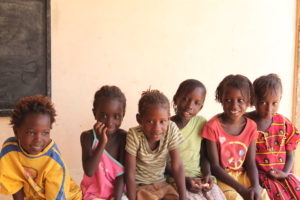The Rights of Senegalese Children

Treatment in Schools
Over 50% of Senegal’s population lives in rural areas, making educational institutions challenging and school choice nonexistent. Many children miss the opportunity to attend school because of geographical barriers and familial responsibilities. Only 57% of students living in urban areas enroll in established educational centers.
Physical discipline from teachers is a common experience among children as young as 6-years-old. This makes the student-teacher relationship rigid and unwelcoming. Not only does this propel many students into detesting the school experience, but it also limits the number of safe spaces they have in their daily lives.
Senegalese Children on Streets
Additionally, hundreds of newborn boys in Senegal have no roof over their heads or family to comfort their cries. Many orphaned children among the streets of the nation’s capital Dakar are known as talibé children. They live in the same building that they attend their religious school teachings called Quranic Institutions. These children sleep on crowded sand floors with little to no personal belongings. Their lives have become an endless amount of physical and mental beatings that stay ingrained in them forever.
The fact that the children are subject to daily distress in their school hours is not the only issue. After the Quran’s teachings, a text that preaches peace, the students are forced to roam about the city’s jammed streets and beg for money and food. They receive beatings for showing up empty-handed to their “masters” or caretakers. Talibé children are in grave danger every day. The choice between the Quranic Schools and the streets is between a covered place to sleep or the sandy roads.
Tensions at Home
Furthermore, there is a mortality rate of 78% for children 5 years and under. With this rate, the need to improve home life among infant and toddler Senegalese children is crucial. It is common for very young children to live with extended family or neighbors when growing up instead of with their parents. This results from parents’ occupational obligations or immigration sacrifices to give their children and families a better future. The change in living situations and locations disrupts the mental and physical state of innocent growing children. Rates of sexual and physical abuse are much higher in children living in these estranged situations. This is because of the lack of supervision and trust between the child and the caretaker.
Noko-Boko’s Roots
In 2018 about 650,000 Senegalese children were not enrolled in schools or learning centers. This stunts their social and emotional growth. Zahra Thiam is the president and founder of Noko-Boku. She explained the catalyst of why so many young children are out of school in Senegal. She specified why this happens in the Kaolack region, where she was born and raised. There is an extreme lack of funding for instructors, supplies and materials in this region and all over Senegal. There is also a lack of essential resources for students throughout the school days, such as food. Thiam says that more schools in Senegal need to be provided with the proper financial and staff support. As a result, the Senegalese school day would improve dramatically. This improvement would be made in the teachings and the spirits of the teachers and students alike.
Noko-Boko is a community-run organization that started in 2018. Every year, it has made incredible efforts to help rebuild and reform schools, orphanages and individual lives of children from Zahra’s village and surrounding towns of the Kaolack region. In the 2018 to 2019 school year, the organization raised $413 to buy school supplies providing a kit to each of the 300 students. These kits consisted of a notebook, three pens, three pencils and geometric tools. Zahra Thiam says that access to quality education is the way to help these Senegalese children out of the oppressive cycle of poverty. It is also a way of showing them that there is so much that the world has to offer and so much that they can offer to the world. Her dedication to raising the quality of education and life for young children in her community is remarkable.
What is Noko-Boko’s Future?
COVID-19 had a detrimental effect on Senegal. With many Senegalese children without a home and many living in orphanages, the need for sanitary supplies is dire. A generous $400 donation from the president of Noko-Boku gave over 100 children clean diapers and disinfectant cleaners. It also gave them wearable garments for physical protection. Although these funds went a long way, Noko-Boku needs people worldwide to have a more profound effect on underprivileged and impoverished children living in the Kaolack region of Senegal. There is a Noko-Boku GoFundMe page with more information on how to help.
Overall, in the final words of Zahra Thiam, “Changing the level of opportunities and treatment of children in Senegal starts with community action and advocacy. However, we cannot conquer the injustices in education, housing, hunger and abuse alone. We need help from individuals around the world with an open heart to hear and aid the needs of these innocent bright lives to create a better future and more equitable world.”
– Nicolettea Daskaloudi
Photo: Flickr